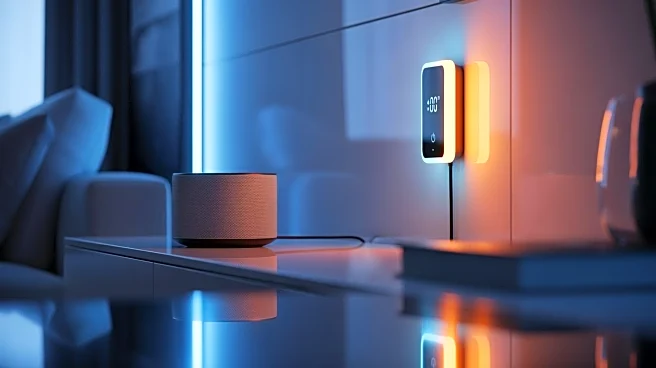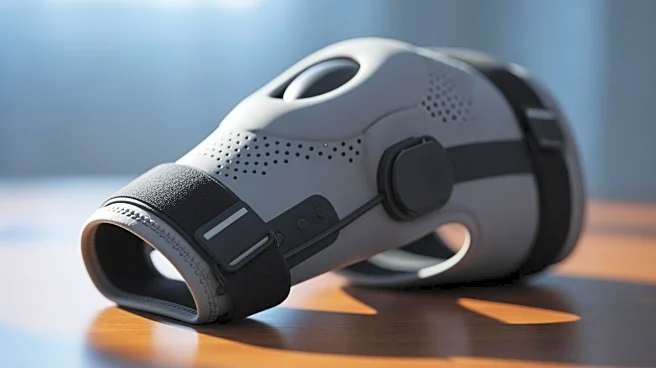What's Happening?
A comprehensive guide has been released detailing the best smart home devices for gifting in 2025. The guide emphasizes products that do not require monthly fees and are compatible with various voice assistants
like Siri, Alexa, and Google. Featured items include the Ecobee Smart Thermostat Essential, which promises up to 23% savings on heating and cooling costs, and the Schlage Encode smart lock, known for its reliability and ease of use. Other notable mentions are the Nest Home Security Camera Gen 3, offering free cloud video storage, and the Wiz Connected LED smart bulb, which provides energy-saving features and full color settings. The guide aims to assist consumers in selecting practical and innovative home tech gifts that enhance everyday living without imposing additional financial burdens.
Why It's Important?
The guide's emphasis on smart home devices reflects a growing trend towards integrating technology into everyday life to improve convenience and efficiency. By highlighting products that do not require ongoing subscription fees, the guide addresses consumer concerns about hidden costs associated with smart technology. This focus on affordability and compatibility with existing systems can drive wider adoption of smart home devices, potentially leading to increased energy savings and enhanced home security. As consumers become more tech-savvy, the demand for user-friendly and cost-effective smart home solutions is likely to rise, influencing market trends and product development in the tech industry.
What's Next?
As the holiday season approaches, consumers may increasingly turn to smart home devices as practical gifts, boosting sales in this sector. Retailers and manufacturers might respond by offering promotions and discounts to capitalize on this trend. Additionally, advancements in smart home technology could lead to the introduction of new features and products, further expanding consumer options. The focus on compatibility and ease of use may encourage tech companies to prioritize user-friendly interfaces and seamless integration with existing systems, potentially shaping future innovations in the smart home market.
Beyond the Headlines
The growing popularity of smart home devices raises questions about data privacy and security, as these technologies often involve the collection and storage of personal information. Consumers and manufacturers alike must navigate the ethical implications of increased connectivity and data sharing. Furthermore, the widespread adoption of smart home technology could lead to cultural shifts in how individuals interact with their living spaces, emphasizing automation and remote control over traditional manual operations.









